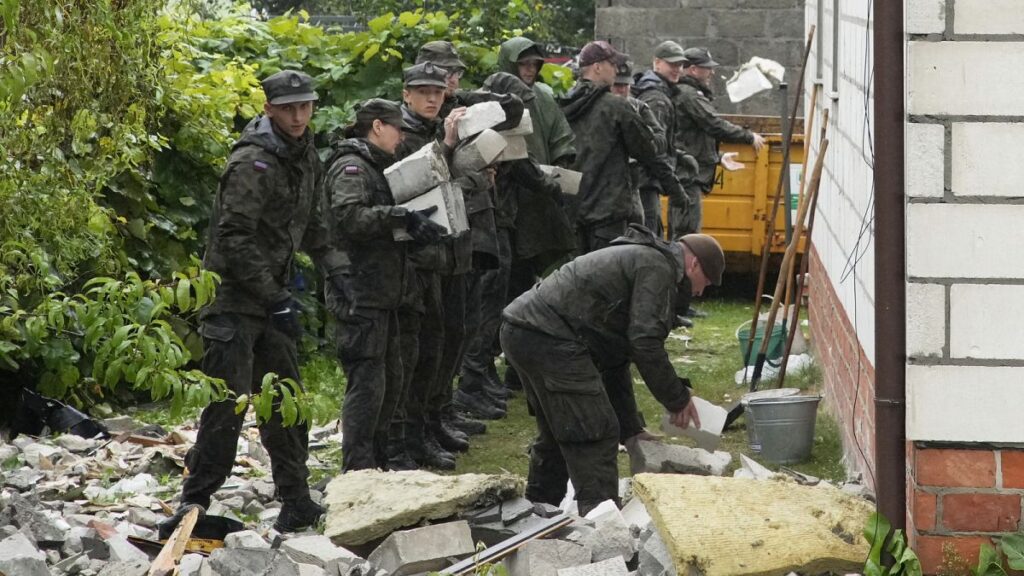A report showing the online prevalence of Kremlin-friendly narratives blaming Ukraine for this month’s incursion of drones into Polish airspace is being misrepresented as showing that Poles mainly hold Kyiv responsible for the incident.
Analysts at Res Futura, a Polish NGO specialised in information security, gathered as many as 179,000 Polish social media posts and comments in the aftermath of the September incursion, and found that 38% of those comments blamed Ukraine while 34% blamed Russia.
This, according to Res Futura, was driven by an “organised disinformation campaign” coordinated by pro-Russian accounts, aimed at sowing distrust in the Polish government and the NATO alliance.
The posts in questions showed a “coherent pattern” typical of pro-Russian disinformation, indicating a “deliberate information-psychological operation”, according to the Res Futura analysis.
The report included a bar graph showing the percentage of the sampled social media comments pinning responsibility on different actors.
Out of these, 38% signalled Ukraine as responsible, 34% blamed Russia, while 15% pointed to the Polish government.
But the same bar graph is now being used in a wave of misleading social media posts claiming it is the result of a recent opinion poll, which purportedly indicates that the Polish population mainly holds Ukraine responsible for the incursion.
Euronews’ fact-checking team, EuroVerify, detected these unfounded claims circulating in several languages – including Arabic, English, French, Hungarian, Polish and Spanish – on Facebook, Telegram, Instagram and X, garnering millions of views.
Several media outlets have also published false headlines, claiming that “one in three Poles blame Ukraine for the drone incursion into Polish airspace.”
‘Pscychological’ warfare
But the study by Res Futura does not in any way suggest that the Polish population holds Ukraine responsible for the incursion, but rather that this was the most predominant narrative circulating on social media, peddled by disinformation actors.
The analysts also found that this narrative was part of a wider disinformation campaign that was unleashed on social networks in the immediate aftermath of the drone incursion.
“The information space in Poland has become polarised, filled with conflicting versions, hostile comments, and emotional accusations,” the analysis explains, adding that a lack of a “dominant, credible” narrative by the Polish government helped fuel conspiracies.
Conflicting reports about Polish intelligence’s assessment of the incursion fuelled misleading claims on social platforms immediately after the attack. Western officials are still unclear on whether they believe the incursion was intentionally provoked by Moscow or not.
It’s provided ample opportunity for hostile actors to promote conspiracies. EuroVerify has previously detected other false narratives related to the incursion being peddled by pro-Russian actors.
As many as 20 drones entered Polish airspace on the night of September 9, prompting Polish and NATO airplanes to scramble to down them.
Since then, three MIG-31 Russian fighter jets have entered Estonian airspace, prompting firm warnings from European allies that objects entering NATO airspace will also be intercepted.
Read the full article here

